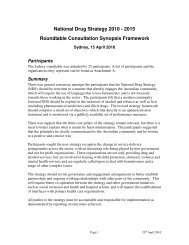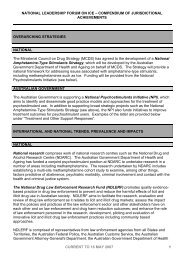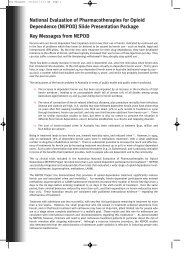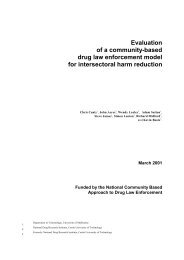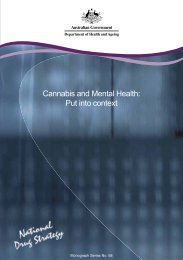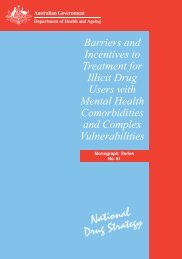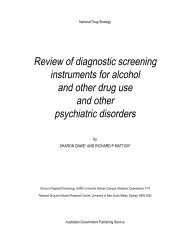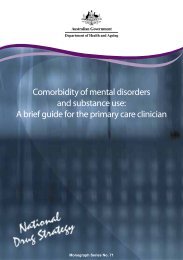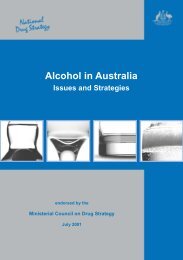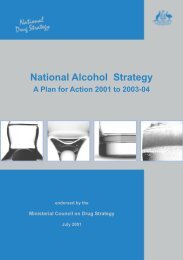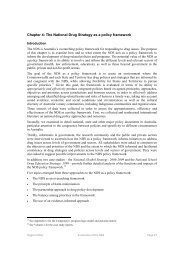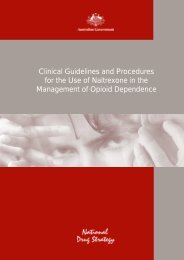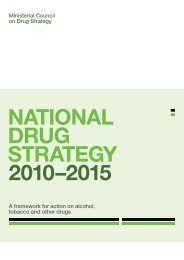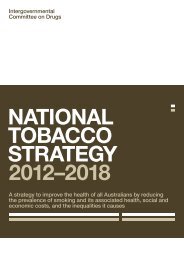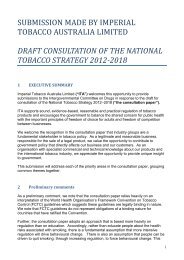A Guide for Frontline Workers - National Drug Strategy
A Guide for Frontline Workers - National Drug Strategy
A Guide for Frontline Workers - National Drug Strategy
Create successful ePaper yourself
Turn your PDF publications into a flip-book with our unique Google optimized e-Paper software.
Counselling and support services<br />
What does counselling involve<br />
Reducing or stopping heroin use will usually involve significant social and lifestyle<br />
changes. Counselling can help people deal with these changes, as well as avoid<br />
going back to heroin use after detoxification and treatment.<br />
In counselling people are encouraged to talk about their drug use and related issues.<br />
The person and counsellor work together to set goals and <strong>for</strong>m a treatment plan.<br />
Sessions focus on developing problem solving and drug-refusal skills, identifying<br />
risky situations where a person may feel tempted to use (e.g. when stressed/upset),<br />
and working out ways to deal with these situations. Some of the sessions may be in<br />
a group (e.g. coping with social pressure to use), as a group can often come up with<br />
more ideas, and the person will hear what works <strong>for</strong> others.<br />
Getting additional support, such as help with finances, legal problems, domestic<br />
violence, accommodation, health concerns, childcare and employment are other<br />
services counsellors will be able to help people access.<br />
Issues to consider about counselling<br />
There are different <strong>for</strong>ms of counselling, and drug and alcohol counsellors and<br />
agencies will work in different ways. It is important that a person finds a counsellor<br />
whom they feel they can trust, and have an open and supportive relationship. They<br />
should be able to talk freely about their concerns and behaviours without being<br />
judged. Sometimes people prefer to have a counsellor of the same gender or cultural<br />
group and this needs to be provided.<br />
A range of outpatient counselling and support services are available in a variety of<br />
agencies (e.g. drop-in-centres, community health centres, drug treatment agencies).<br />
Counselling may also be provided as part of other treatment programs, <strong>for</strong> example,<br />
in methadone or buprenorphine substitution treatment, or naltrexone treatment.<br />
Research shows that counselling works best when the counsellor is understanding,<br />
supportive and helps a person identify their own solutions rather than impose a<br />
solution on them.<br />
Most people agree that counselling on its own will probably not be enough to<br />
change dependent heroin use. Counselling and support services as a part of other<br />
treatments, however, can be more effective (e.g. substitution treatment with<br />
methadone or buprenorphine and counselling).<br />
18



